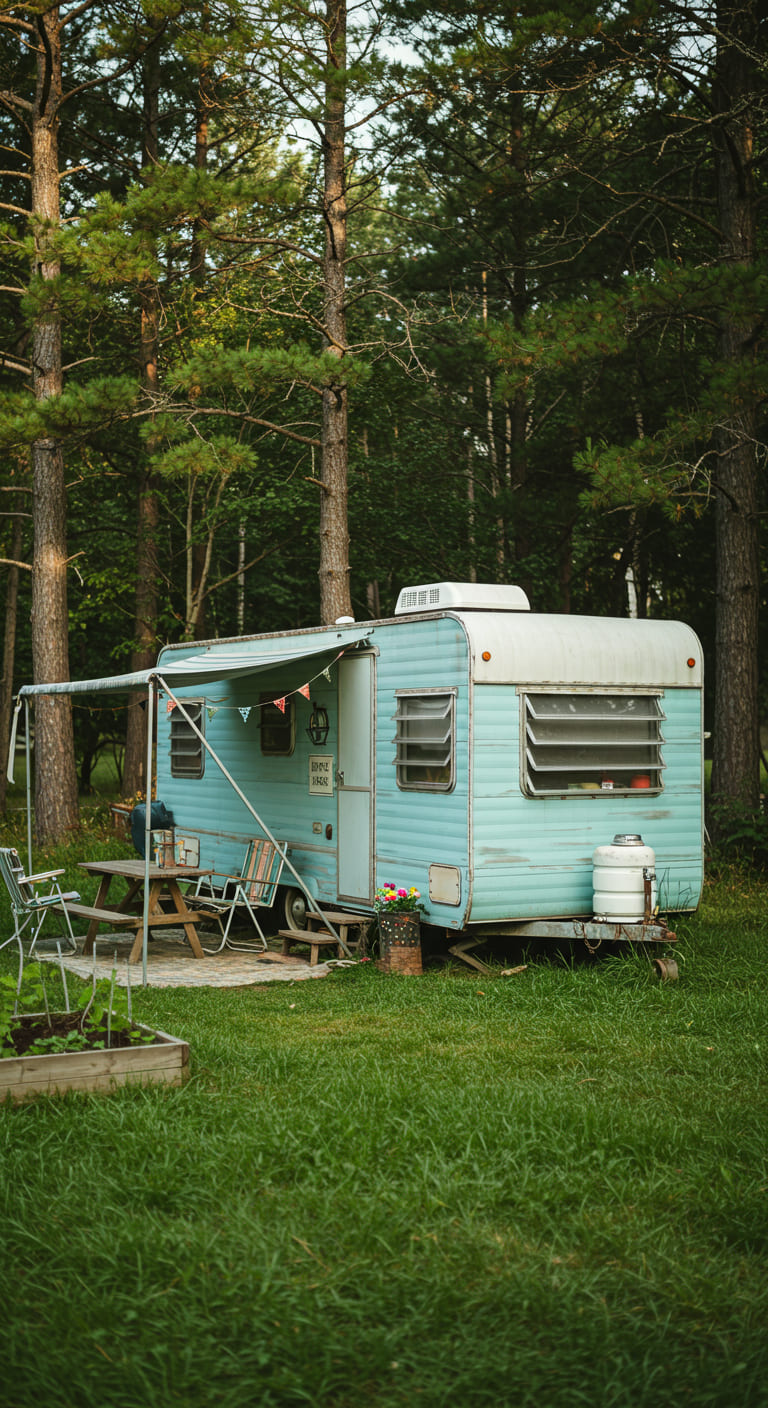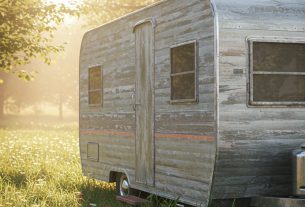When I first considered the idea of living in a trailer home, I was filled with excitement. The thought of a cozy, mobile space where I could explore new places was incredibly appealing. However, a pressing question lingered in my mind: “Are trailer homes insulated?” After diving deep into research and speaking with fellow trailer home enthusiasts, I can now share valuable insights about insulation in trailer homes, and I invite you to share your experiences as well.
Understanding Trailer Home Insulation
Before we delve into specifics, let’s clarify what insulation means in the context of trailer homes. Insulation is a material that helps to reduce heat transfer between the inside and outside of a structure. In traditional homes, insulation plays a crucial role in maintaining a comfortable living environment, and the same holds true for trailer homes.
The Importance of Insulation in Trailer Homes
Insulation is vital for several reasons:
- Energy Efficiency: Proper insulation reduces heating and cooling costs, which is essential when living in a compact space.
- Comfort: A well-insulated trailer home provides a comfortable living environment, regardless of external weather conditions.
- Noise Reduction: Insulation can help to minimize noise from outside, creating a peaceful atmosphere inside your trailer.
- Moisture Control: Good insulation helps prevent moisture buildup, which can lead to mold and mildew.
Types of Insulation Used in Trailer Homes
As I researched insulation options, I discovered that there are several types commonly used in trailer homes:
- Fiberglass Insulation: This is one of the most popular choices due to its affordability and effectiveness. Fiberglass batts or rolls can be installed in the walls and ceilings of trailer homes.
- Foam Board Insulation: Rigid foam boards provide excellent insulation and can be used for floors, walls, and ceilings. They offer a higher R-value than fiberglass, making them a great option for colder climates.
- Spray Foam Insulation: This type expands on application and fills gaps, providing a tight seal. It’s particularly effective for irregular spaces but can be more expensive.
- Reflective or Radiant Barrier Insulation: This type reflects heat away during hot months and is often used in combination with other insulations.
Evaluating the Insulation in Your Trailer Home
When I first moved into my trailer home, I wanted to evaluate its insulation to ensure it was adequate for my needs. Here are some steps I took:
- Visual Inspection: I checked the insulation in the walls and ceiling, looking for any gaps or signs of wear.
- Temperature Testing: I monitored the interior temperature during extreme weather conditions to see how well the insulation was performing.
- Moisture Checks: I looked for any signs of moisture accumulation, which could indicate inadequate insulation or ventilation issues.
Case Studies: Real-Life Experiences with Trailer Home Insulation
To gather more insights, I reached out to fellow trailer home owners. Here are a few experiences that stood out:
Case Study 1: The Benefits of Upgrading Insulation
One owner, Sarah, shared her experience of upgrading from fiberglass insulation to spray foam. She noticed a significant decrease in her heating bill during winter. “I used to dread the cold months, but with the new insulation, my trailer stays warm and toasty,” she said.
Case Study 2: The Importance of Proper Installation
Another owner, Mark, emphasized the importance of proper installation. He had initially installed foam board insulation himself, but it wasn’t sealed correctly, leading to drafts. After hiring a professional, he remarked, “The difference was night and day. It’s essential to get it done right!”
Statistics on Trailer Home Insulation
Research shows that properly insulated trailer homes can reduce energy costs by up to 30%. According to the U.S. Department of Energy, homes with high-quality insulation maintain their temperature more effectively, which is crucial for energy savings. Additionally, homes with adequate insulation can improve indoor air quality by minimizing moisture and mold growth.
Common Misconceptions About Trailer Home Insulation
Despite the benefits of insulation, there are several misconceptions that I encountered during my research:
- All Trailer Homes are the Same: Many people believe that all trailer homes come with adequate insulation. In reality, this varies widely by model and year.
- Insulation is Only for Cold Weather: While insulation is crucial in winter, it also plays a significant role in keeping trailer homes cool during summer.
- DIY Insulation is Always Effective: While some DIY solutions can work, improper installation can lead to more problems than benefits.
Enhancing Your Trailer Home’s Insulation
If you find that your trailer home’s insulation is lacking, there are several steps you can take to enhance it:
- Seal Gaps: Use caulk or foam sealant to fill any cracks or gaps around windows and doors.
- Add Insulation: Depending on the type of insulation already in place, consider adding more or upgrading to a better type.
- Install Thermal Curtains: These can help keep the temperature stable inside your trailer, especially during extreme weather.
- Improve Ventilation: Proper ventilation is crucial for maintaining air quality and preventing moisture buildup.
Conclusion: Your Trailer Home Journey Awaits
As I wrap up my exploration of trailer home insulation, I hope you now have a better understanding of its importance and how to evaluate and improve it. Whether you’re a seasoned trailer home owner or just starting your journey, knowing about insulation can drastically enhance your living experience.
Insulation not only contributes to energy efficiency and comfort but also plays a vital role in maintaining a healthy living environment. As you embark on your trailer home adventure, remember to consider the insulation — it could make all the difference!
FAQ
Q: How can I tell if my trailer home is well-insulated?
A: Look for visible signs of insulation, check temperature consistency, and monitor for drafts or moisture buildup.
Q: Is it worth upgrading insulation in an older trailer home?
A: Yes, upgrading insulation can lead to significant energy savings and improved comfort levels.
Q: What is the best type of insulation for trailer homes?
A: It depends on your climate and budget. Spray foam offers high R-values, while fiberglass is affordable and effective.
If you found this article insightful, I encourage you to sign up for our newsletter for more tips on trailer home living. Share your experiences with trailer home insulation in the comments below, and don’t forget to spread the word on social media!
Auto Amazon Links: No products found.

Sign up for our newsletter and stay up to date with exclusive news
that can transform your routine!




